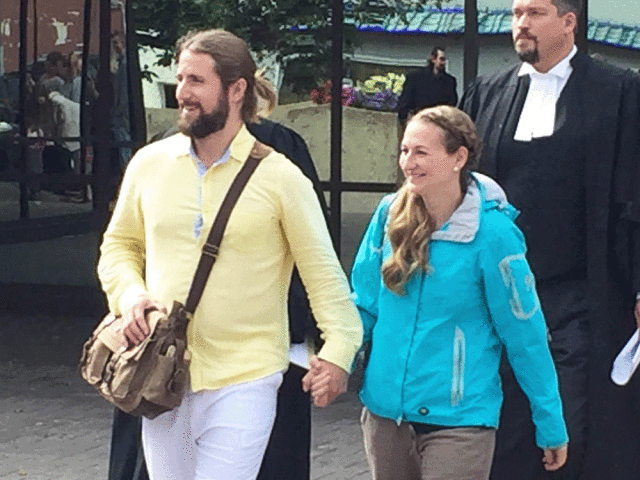Its practitioners have a “philosophical aversion” to prescription drugs, embrace homeopathy — a practice experts dismiss as scientifically preposterous — and believe vitamin supplements can alter the course of incurable diseases.
Now, proponents of naturopathy say the practice is poised to ultimately “disrupt” the status quo in health care.
A new commentary argues naturopathy fulfills three Christensen criteria for a “disruptive innovation,” a term famously coined by Harvard University’s Clayton Christensen, author of The Innovator’s Dilemma.
“Naturopathy has the potential to surpass allopathic care” — meaning, science-based, modern medicine — “as a dominant model of primary care,” the authors wrote, one that favours “self-care behaviours, lifestyle practices and natural treatments” over drugs and surgeries.
Modern health systems are “moderately effective in prolonging life, albeit at high costs,” the authors wrote. And while naturopathy hasn’t been proven in clinical trials to “cure” disease, they said, “very few ‘cures’ exist in medicine at all.”
In addition to its growing popularity, “the fact that naturopathy de-emphasizes prescription drugs and surgical interventions in favour of non-pharmacological health promotion and self-care could disrupt the present economic model that fuels health-care costs.”
The article, published in the obscure journal Medicina, frustrates Timothy Caulfield, who said the false dichotomy — that science-based doctors only use drugs and surgery, and only “natural” alternative practitioners do prevention — “drives me nuts.”
“If you see the phrase ‘allopathic’ you know that whatever follows is nonsense,” added Caulfield, Canada Research Chair in heath law and policy at the University of Alberta.
The commentary is focused on the U.S. health system, but the director of research for the Canadian College of Naturopathic Medicine is among the authors. Naturopathy is based on the supernatural, vitalistic belief that “nature cures” and the commentary comes as an Alberta couples’ acquittal in their toddler’s death is raising fresh concerns about the rise in the use of alternative medicine.
David and Collet Stephan’s 19-month-old son, Ezekiel, died in 2012 after his parents attempted to treat him with naturopathic medicine. Two years after they were found guilty for failing to provide the necessaries of life, the Supreme Court of Canada ordered a new trial. Last week, in a Lethbridge courtroom, they were acquitted.

Queen’s Bench Justice Terry Clackson found that Ezekiel had viral meningitis, and that he died because an ambulance didn’t have a properly fitting oxygen mask.
A naturopathy enthusiast, David Stephan said in a Facebook live video following the verdict that the case is precedent-setting for parents. “The journey is really just beginning,” he said. “This is a forward movement where we are seeing the erosion of parental rights and medical choice here in Canada.”
His wife, Collet, had purchased a product containing echinacea from a clinic run by a Lethbridge naturopath. Ezekiel was waiting in the car, his body so stiff he couldn’t sit in his car seat. The regulatory body governing Alberta’s naturopaths would later dismiss a complaint against the Lethbridge naturopath, saying there was no evidence that she saw or examined the child, or even knew that the herbal remedy was for a child so ill.
The trial heard that Ezekiel didn’t see a pediatrician or family doctor for routine checkups. His parents never had him vaccinated.
Anti-vaccination rhetoric isn’t uncommon among naturopaths. Of 330 naturopath websites from B.C. and Alberta analyzed in a study published by Caulfield in 2017, 40 included vaccine hesitancy language, and 26 offered vaccine or flu shot alternatives.
It’s always wrapped in a blanket of pseudoscience
For Caulfield and others, the idea of turning primary care over to naturopathic medicine is unnerving. Last year, a New Brunswick judge issued an injunction prohibiting naturopaths from advertising themselves as a “doctor” or “family physician.” Training programs require an undergraduate degree, plus prerequisite sciences, followed by a four-year program that includes basic and clinical sciences. Still, “Naturopaths are not medical practitioners and naturopaths are not allowed to use words to suggest they are,” Court of Queen’s Bench Justice Hugh McLellan said in a ruling covered by CBC.
However, according to the commentary, examples of naturopathic treatments that can alter the course of incurable diseases are “plentiful.”
The authors provided two examples — depression, and Type 2 diabetes. One 2008 review found St. John’s wort extracts are superior to placebos and similarly effective as standard antidepressants, but with fewer side effects.
For diabetes, yoga, omega-3 fatty acids, cinnamon, chromium, carbohydrate reduction and other therapies routinely recommended by naturopaths “all have robust” evidence for reducing the risk of diabetes, the authors wrote.
“In addition, naturopathy derives evidence from the traditional and historical use of practices like botanical medicine, homeopathy and hydrotherapy.”
Others argue that the fact homeopathy is so ingrained in naturopathy is enough to dismiss the practice. Homeopathy holds that illnesses can be cured by giving people massively-diluted remedies made of substances that caused the original disease.
Many naturopaths in Canada also advertise “treatments” for cancer, including infrared sauna therapy, ozone injections, ionic foot baths and high-dose intravenous infusions of vitamin C.
Caulfield said the authors are using a fringe publication to give a veneer of legitimacy to unproven therapies. When sensible advice is provided, “it’s always wrapped in a blanket of pseudoscience,” he said. “They even try to present exercise and eating well as if it’s an alternative therapy that they invented, that somehow they have ownership over. We know that stuff works because of science.”
The paper’s authors (lead author Ryan Bradley, of the National University of Natural Medicine in Portland, Ore. declined an interview) said that the criticism that there is little evidence for naturopathy isn’t valid. If anything, they seemed to argue that medical doctors should be more like them. “The survival of biomedical primary care may require it to redefine itself and mirror the values, if not the interventions, represented by modern naturopathy,” they wrote.


